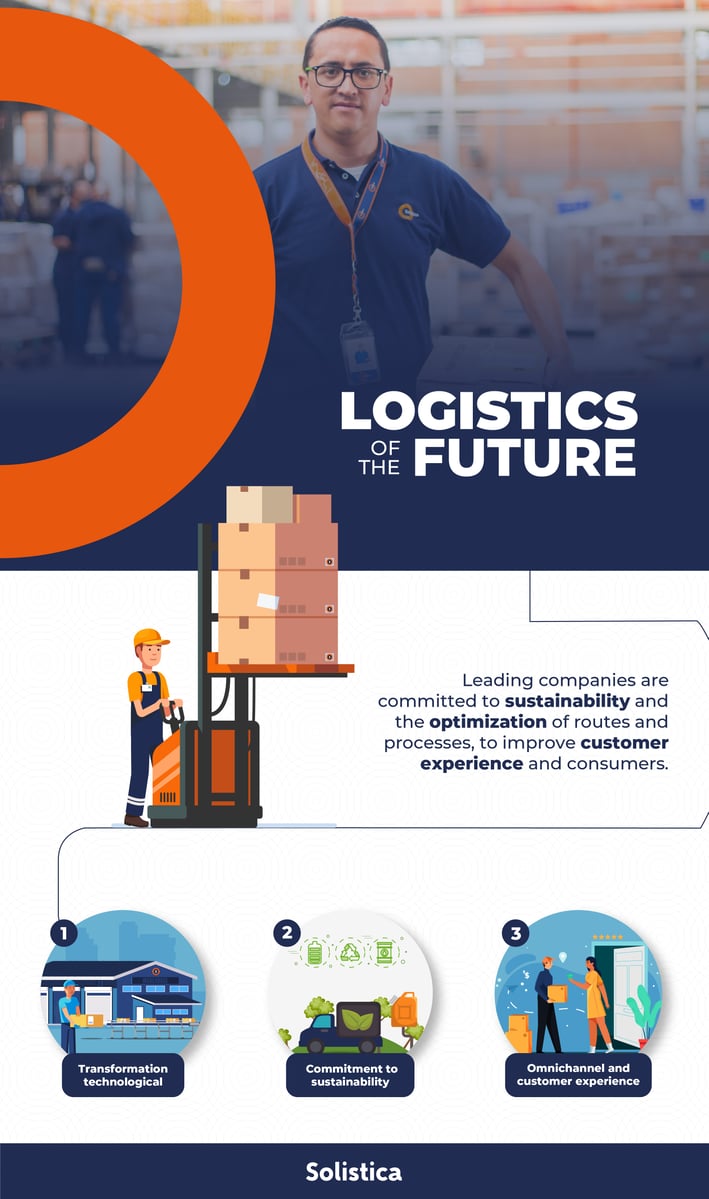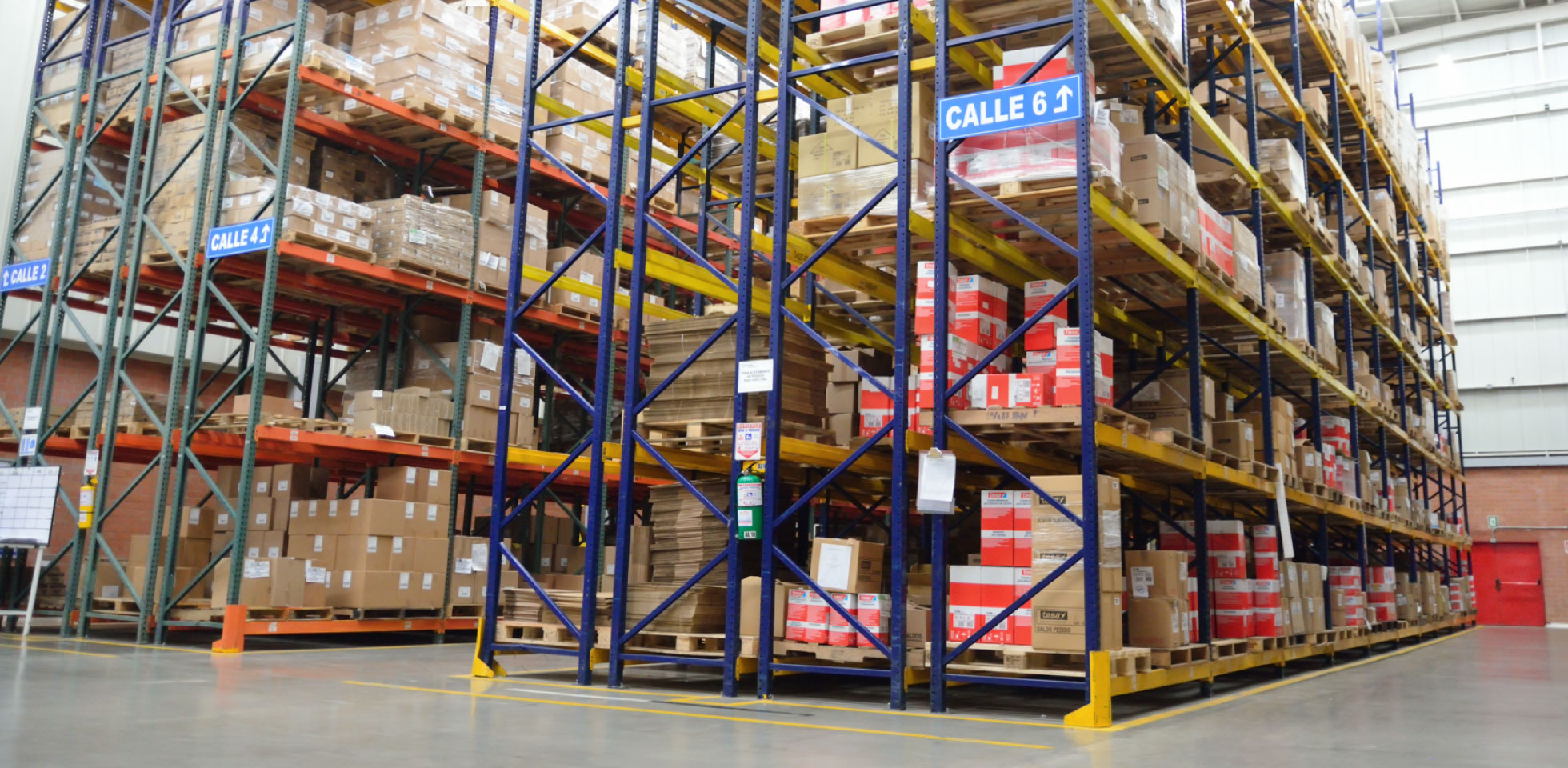International logistics is a continuously evolving sector currently undergoing a profound transformation. Technological innovation, sustainability, and omnichannel integration are the driving forces shaping the future of global logistics. As we approach 2024, these trends will accelerate, ushering in a more agile, efficient, and environmentally friendly logistics landscape. In this article, we will explore how these trends are expected to transform international logistics in the coming years and how companies can prepare for this exciting future.

- Technological Innovation and the AI Revolution
Artificial intelligence (AI) and machine learning are redefining the operations of international supply chains. These technologies have demonstrated their ability to optimize processes in areas such as route planning, warehouse management, and the overall supply chain. - 2024: The AI Boom
By 2024, exponential adoption of AI in international logistics is expected. Predictive demand systems will enable more precise planning, virtual assistants will simplify supply chain management, and autonomous vehicles will revolutionize the speed and efficiency of logistics operations worldwide. AI will enable smarter decision-making and enhance visibility throughout the supply chain. - Autonomous and Sustainable Transportation
The future of transportation in international logistics will be autonomous and sustainable. The introduction of autonomous and electric vehicles promises to reduce operating costs and minimize the carbon footprint of cross-border deliveries. - 2024: The Era of Autonomous Vehicles
By 2024, we will see autonomous trucks operating on selected roads, streamlining the distribution of goods. Equipped with advanced navigation systems and sensors, these vehicles will be capable of operating safely and efficiently in various conditions. Simultaneously, the electrification of urban delivery fleets with vans, scooters, and drones will contribute to sustainable last-mile distribution. These advancements will not only reduce operating costs for companies but also significantly decrease air pollution and the environmental impact of logistics operations. - Blockchain and Absolute Traceability
Blockchain technology is revolutionizing international trade by providing complete, decentralized traceability of products throughout the entire supply chain. - 2024: Blockchain in Full Swing
By 2024, blockchain will have matured enough to allow all stakeholders in global logistics to track items in real-time, validate their origin, and prevent fraud. Blockchain's radical incorruptibility will enhance efficiency at customs, ports, airports, and border crossings. Additionally, it will facilitate dispute resolution and streamline document verification processes in international transactions. The trust and transparency provided by blockchain will boost efficiency and security in logistics operations worldwide. - Sustainability and Compliance with Environmental Regulations
Sustainability has become a priority for global logistics. Compliance with increasingly stringent environmental regulations will require a significant restructuring of transportation networks and distribution centers to reduce carbon emissions. - 2024: Commitment to Sustainability
Leading companies will take a proactive stance on sustainability. They will optimize transport routes to reduce distance traveled and, consequently, carbon emissions. Moreover, they will invest in renewable energy sources to power their operations and use clean fuels for their vehicles. Adopting sustainable practices will not only enable them to comply with increasingly stringent environmental regulations but also meet the demands of environmentally-conscious consumers looking to support environmentally responsible companies. - Omnichannel and Customer Experience
Real-time omnichannel will be the norm in 2024. Global logistics systems will be fully integrated to deliver products to customers when, where, and how they desire, whether in physical stores, home delivery, lockers, or specific pickup points. - 2024: The Omnichannel Era
International logistics will adopt a multimodal perspective to meet this demand. The key will be the seamless integration of all channels to provide a consistent and invisible user experience for the customer, regardless of how they make the purchase or receive the product. Order management systems and reverse logistics will be optimized to ensure greater efficiency in product delivery through multiple channels. This will enable companies to quickly adapt to changing consumer preferences and provide an exceptional customer experience. - Leading the Global Logistics Revolution
In summary, international logistics in 2024 will be defined by innovation and the demands of a hyperconnected, environmentally-conscious consumer. Companies that lead these transformations will chart the course in the fourth industrial revolution of global logistics. The adoption of technologies such as artificial intelligence and blockchain, the transition to autonomous and electric vehicles, proactive compliance with environmental regulations, and the implementation of omnichannel strategies will be key to success in this exciting logistics future. Companies embracing these changes will not only be at the forefront of the industry but also contribute to a more efficient, sustainable, and customer-centric world of international logistics in 2024.






